When you delve into the history of DKNY, you'll find that it was established by Donna Karan in 1989. The brand's vision was to fuse high-end fashion with the practicalities of everyday life, drawing inspiration from Karan's daughter and the dynamic culture of New York City. DKNY's commitment to creating versatile and functional clothing made stylish choices accessible to a broader audience. It pioneered innovations such as "Seven Easy Pieces" and athleisure collections, which mirrored the evolving lifestyles of contemporary consumers. Through its diverse range of designs, DKNY embodies the spirit of NYC street style while promoting sustainability. This distinctive combination has cemented its influence in the fashion industry, shaping trends and directions that continue to resonate today. There is a wealth of information to discover about its remarkable journey.
Origins of DKNY

The inception of DKNY in 1989 marked a pivotal moment in the fashion industry, as designer Donna Karan sought to bridge the gap between high-end fashion and everyday wear. Inspired by her daughter Gaby, Karan envisioned a diffusion line that would offer contemporary styles accessible to a broader audience. Rooted in the vibrant culture of New York City, DKNY encapsulated the urban lifestyle, reflecting the fast-paced life of women on the go. The brand's ethos resonates with the idea of providing stylish alternatives that blend luxury with practicality.
Karan's initial focus was on creating versatile and practical clothing, effectively combining denim and sportswear. The use of jeans in her collections exemplified this approach, providing fashionable yet functional options for everyday wear. Unlike her mainline collection, Donna Karan New York, DKNY aimed to deliver stylish alternatives at a lower price point, making high-fashion designs attainable for more consumers.
As DKNY gained traction, it quickly evolved into a global lifestyle brand, expanding beyond clothing to encompass various sub-brands and products. This strategic evolution allowed DKNY to maintain its relevance in an ever-changing fashion landscape, solidifying its position as a key player in both casual and contemporary style.
Brand Philosophy and Vision
While traversing the fast-paced world of fashion, DKNY stands out for its commitment to life and empowerment, crafting practical yet stylish designs that resonate with individuals from diverse backgrounds. The brand philosophy of DKNY is rooted in a desire to reflect the vibrant energy of New York City while making modern fashion accessible to all.
Here's how DKNY embodies its vision:
- Empowerment: DKNY aims to empower individuals through fashion, promoting confidence and self-expression.
- Accessibility: The brand guarantees that stylish clothing is available to a wider audience, breaking down barriers in the fashion industry.
- Innovation: DKNY continuously seeks innovative designs that challenge trends and resonate with contemporary lifestyles.
- Sustainability: The brand is committed to ethical practices and sustainable production methods, addressing environmental concerns while delivering quality.
Key Collections and Innovations
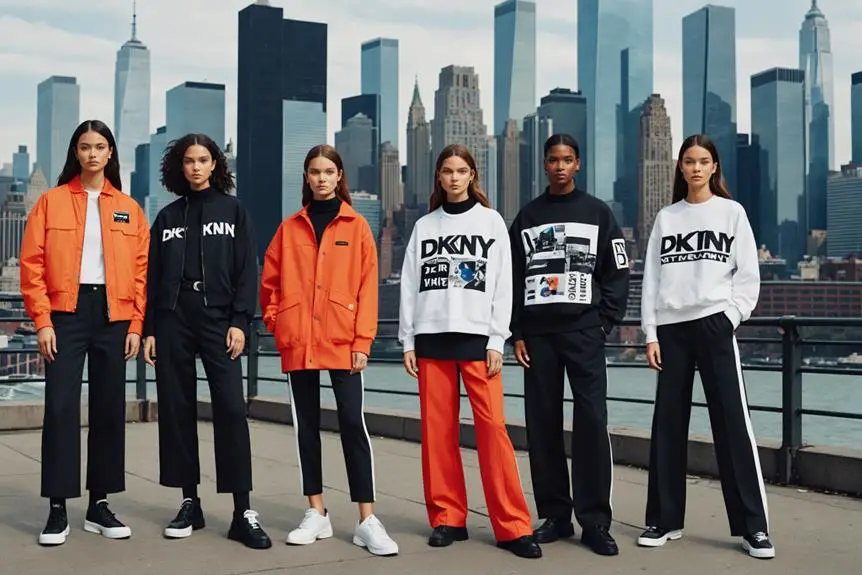
Building on DKNY's philosophy of empowerment and accessibility, the brand has consistently launched key collections and innovations that resonate with the dynamic lifestyle of its audience. Since its first major collection in 1985, which introduced the concept of "Seven Easy Pieces," DKNY has emphasized versatility, enabling customers to mix and match styles effortlessly. This innovative approach set the stage for future collections.
In July 1991, DKNY expanded its reach by introducing its first menswear collection, offering an extensive lifestyle wardrobe that catered to modern men. That same year, DKNY Jeans launched, appealing to a youthful demographic while maintaining the brand's signature urban aesthetic.
The introduction of DKNY Active in 1995 marked a significant move into the athleisure market, merging sporty functionality with fashion-forward designs for everyday wear. Among the brand's notable innovations are the creation of bodysuits and wrap skirts, which provided practical yet chic options for women. These collections and innovations not only reflect DKNY's commitment to contemporary style but also demonstrate its adaptability to the evolving fashion landscape, ensuring it remains relevant in a fast-paced world.
Cultural Influence and Impact
DKNY stands as a powerful emblem of modern New York fashion, seamlessly weaving the city's vibrant culture into its designs and marketing strategies. As a prominent fashion house, DKNY has shaped the global perception of American style, firmly establishing itself in urban lifestyle fashion since its inception in 1989.
Here are four key aspects of DKNY's cultural influence:
- Celebration of Diversity: DKNY champions inclusivity, reflecting the rich tapestry of cultures that define New York.
- Street Style Inspiration: The brand captures the essence of NYC street style, merging contemporary trends with authentic urban aesthetics.
- Social Engagement: By addressing contemporary social issues, DKNY connects with consumers on a deeper level, reinforcing its relevance.
- Intergenerational Appeal: DKNY's adaptability guarantees its designs resonate with diverse consumers, maintaining a strong urban identity across generations.
Through these elements, DKNY not only embodies New York's dynamic spirit but also influences the global fashion landscape, setting trends that resonate far beyond the city limits. Its commitment to diversity and street style solidifies its position as a leader in modern fashion, making a lasting impact on culture and consumer behavior.
Future Directions and Goals
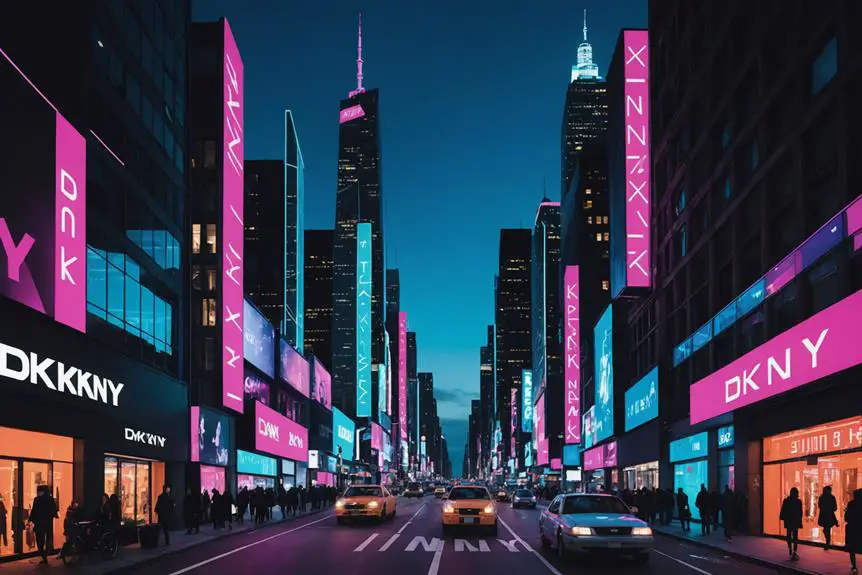
As the fashion landscape evolves, DKNY remains committed to innovating its designs while ensuring accessibility for all consumers. The brand recognizes that sustainability is no longer just a trend; it's a necessity. By adopting ethical practices in production, DKNY aims to align with contemporary consumer preferences, reflecting a growing demand for environmentally responsible fashion.
To connect with younger generations, DKNY is enhancing its presence on social media platforms, leveraging these digital spaces to engage directly with its audience. This strategy not only fosters community but also allows the brand to gather real-time feedback on consumer desires. Future collections will prioritize versatility and practicality, drawing inspiration from the dynamic energy of New York City, ensuring that each piece fits seamlessly into modern lifestyles.
Moreover, DKNY plans to explore collaborations with other brands and creatives. These partnerships will diversify its offerings and expand market reach, allowing the brand to stay relevant and innovative in a competitive landscape. As DKNY navigates these future directions, it aims to remain a staple in the wardrobes of consumers who value style, sustainability, and the spirit of New York.
Frequently Asked Questions
What Does DKNY Stand For?
DKNY stands for "Donna Karan New York." It represents the brand's identity, emphasizing modern urban fashion inspired by the city's vibrancy. You can see how it reflects the dynamic lifestyle and spirit of New York.
Does Donna Karan Still Own Dkny?
No, you'll find that Donna Karan doesn't own DKNY anymore. After selling the brand to G-III Apparel Group in 2016, she stepped back and shifted her focus to her Urban Zen initiative.
Is DKNY a High End Brand?
DKNY isn't considered a high-end brand, but it offers quality, stylish options at more accessible price points. You'll find contemporary designs that reflect urban lifestyle trends, making it appealing for everyday fashion wear.
Where Did Donna Karan Go to College?
Donna Karan attended the Parsons School of Design in New York City. There, you'd find her honing her skills and understanding the fashion industry, which laid the foundation for her impressive career as a designer.
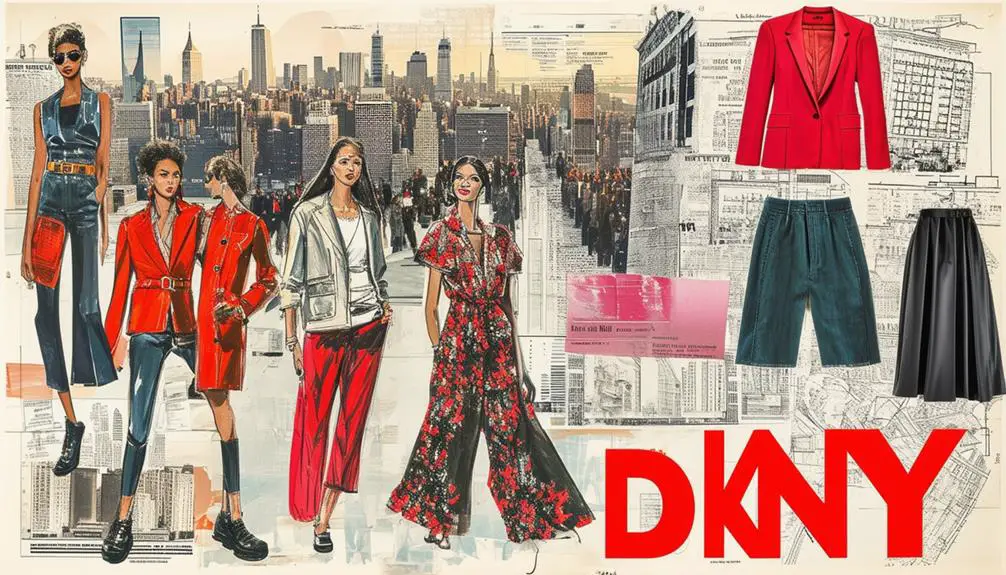

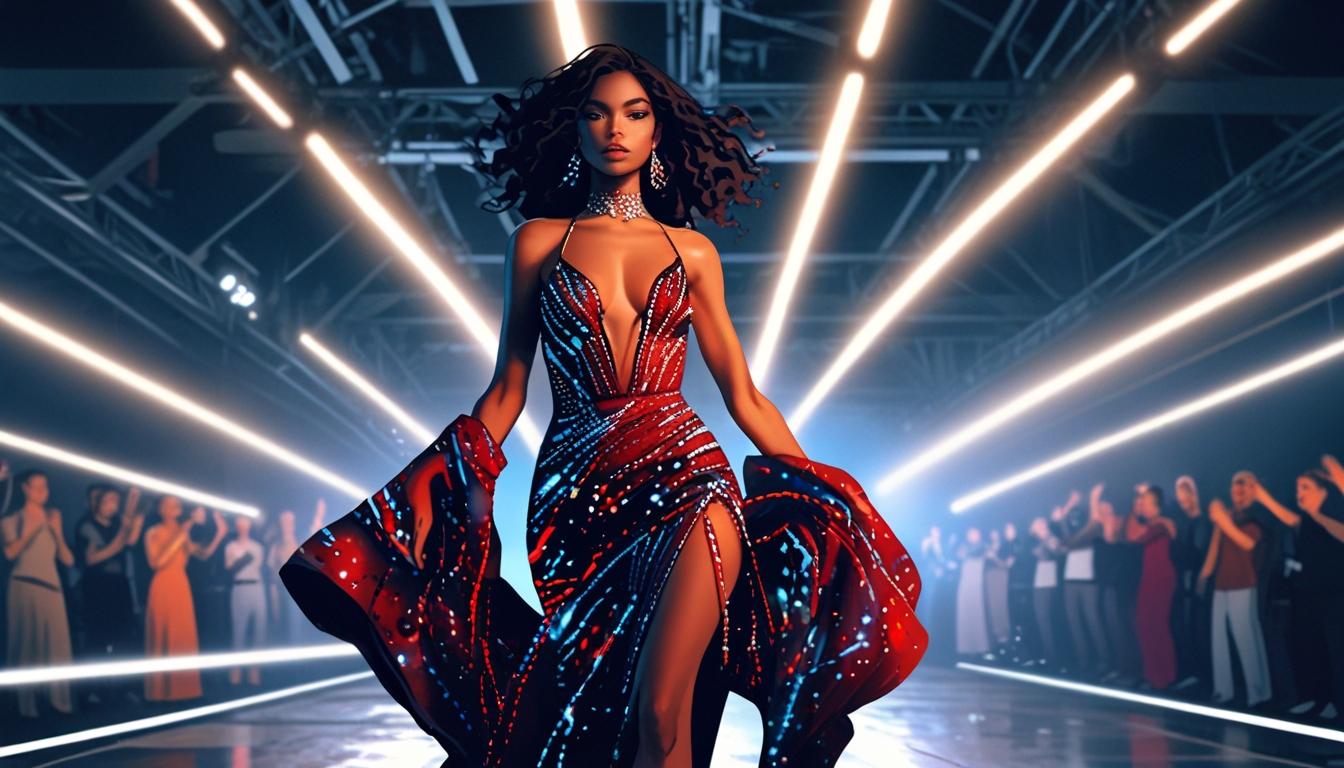
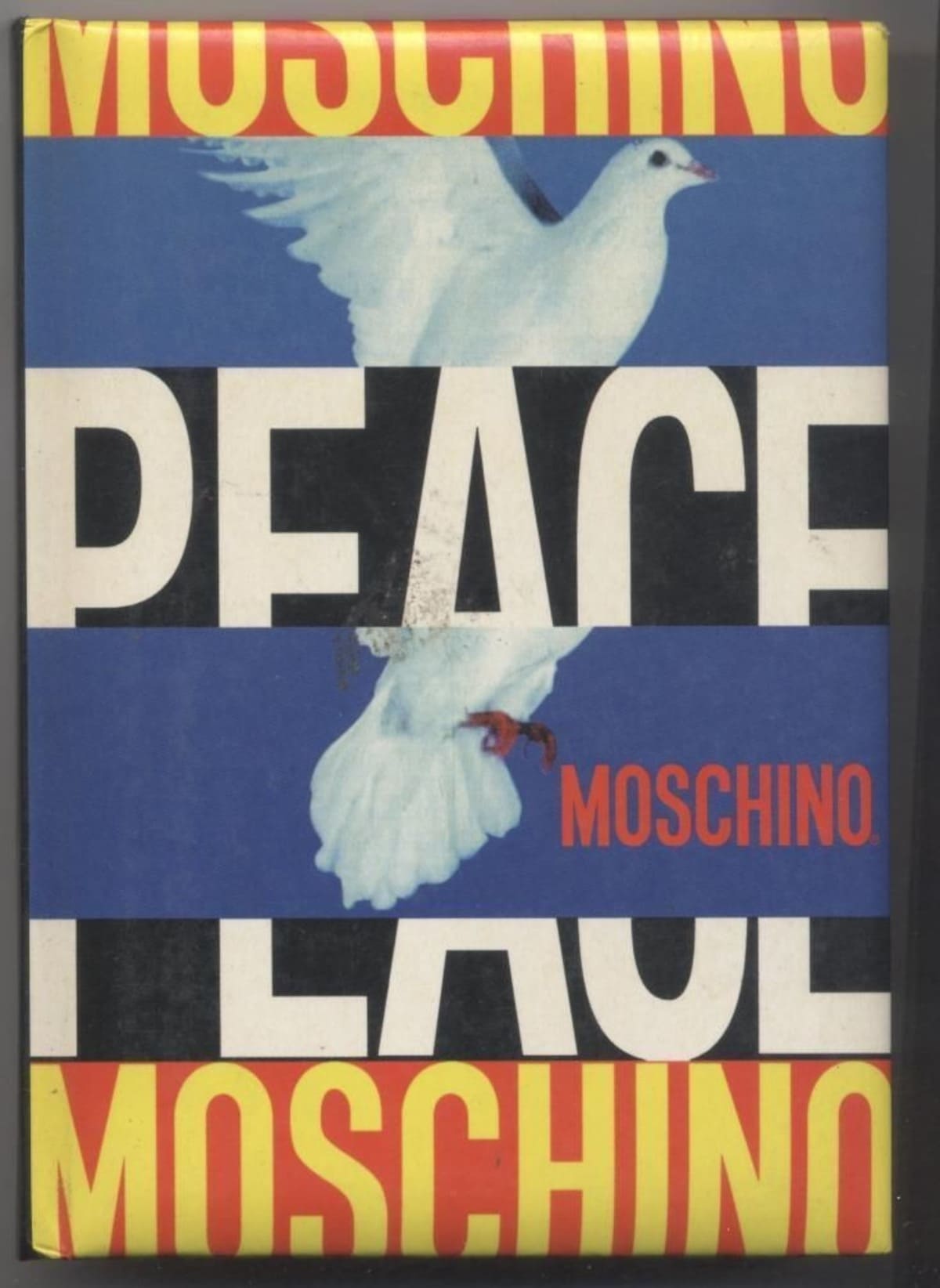
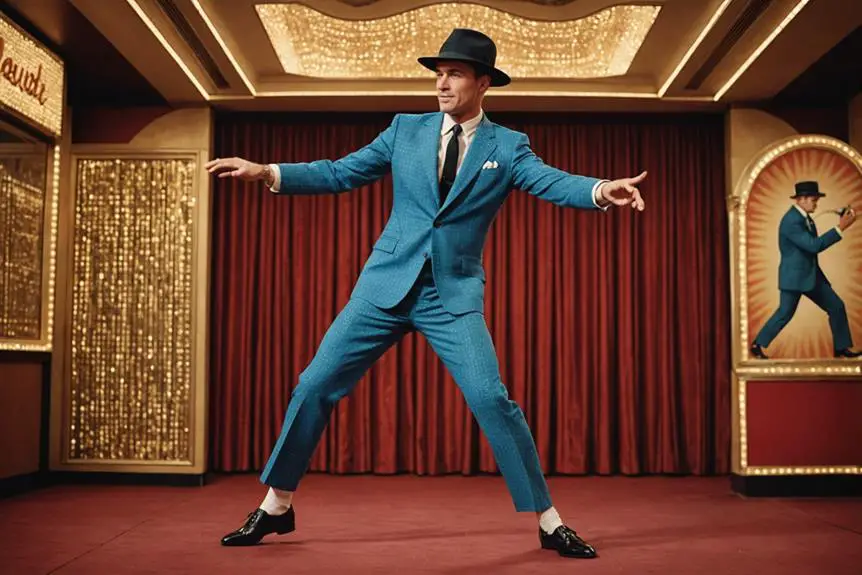
Your article helped me a lot, is there any more related content? Thanks!
Can you be more specific about the content of your article? After reading it, I still have some doubts. Hope you can help me.
Can you be more specific about the content of your article? After reading it, I still have some doubts. Hope you can help me. https://accounts.binance.info/zh-CN/register-person?ref=WFZUU6SI